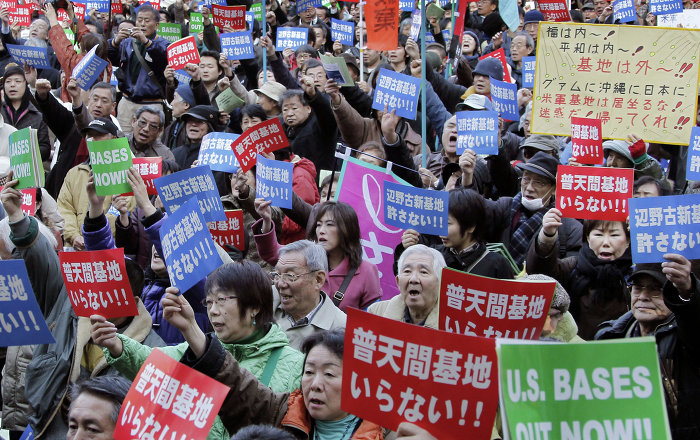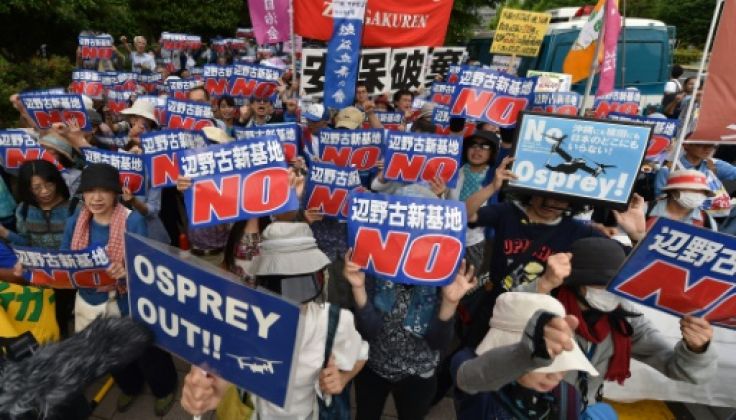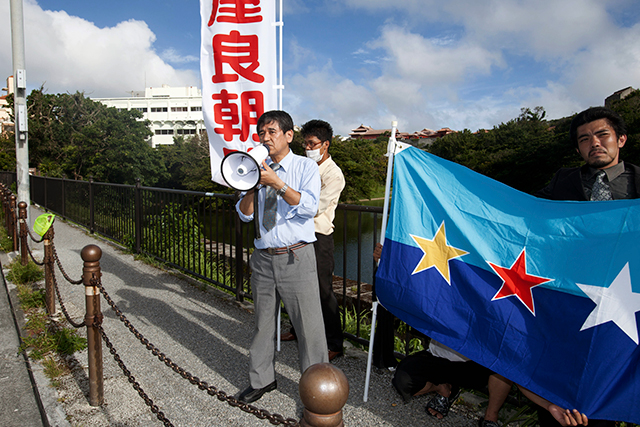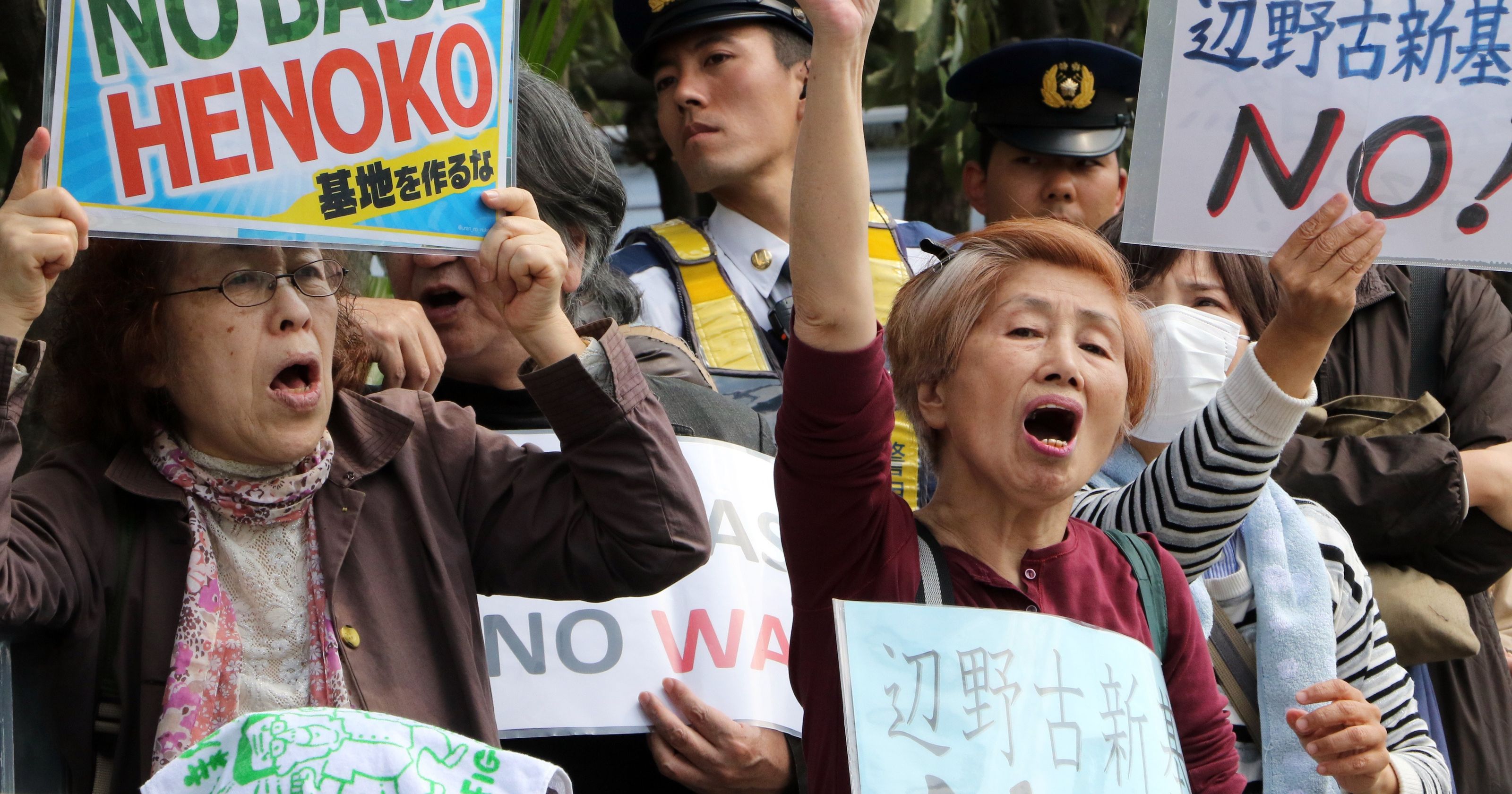
Tokyo will resume construction work at the new site within the prefecture while the Okinawa Prefectural Government intends to challenge the central government's decision to court.

Tokyo will resume construction work at the new site within the prefecture while the Okinawa Prefectural Government intends to challenge the central government's decision to court.

The government forced the bills through the lower house of parliament in July despite massive protests. More than half of people polled on the issue oppose the bills, which would allow Japan's armed forces to defend an ally under attack, a drastic shift in Japan's post-war security policy.

Ask any of the thousands of USA Marines participating in Talisman Sabre — particularly those based on the tiny island of Okinawa in Japan — and they will tell you that the NT and Rockhampton are war games nirvana.

How many foreign military bases would you accept in your hometown?

"I'm concerned that things may get nasty if the government keeps taking the current high-handed approach ... prompting anger not only among Okinawans but among some outside the islands," he said. Tokyo and Washington are working to update the guidelines governing their military alliance at a time of rising disquiet over China's growing assertiveness.